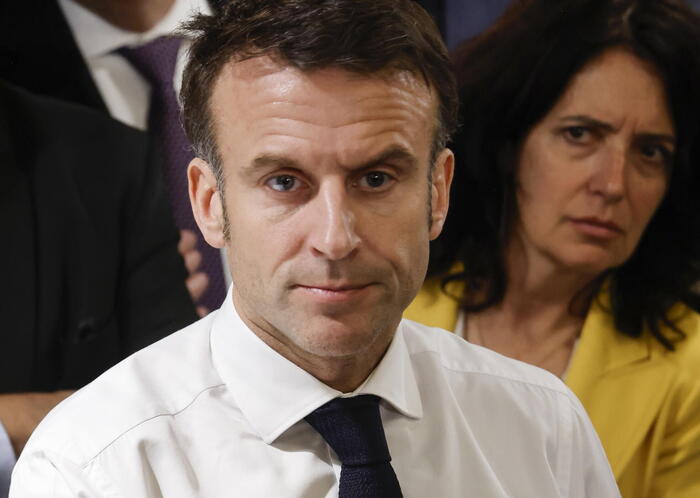Ukraine has taken advantage of this Sunday to remember that there will be no peace or end to the war if Russia does not end its occupation of the Crimean peninsula, in the hands of Moscow since 2014. "With the return of Crimea, we will restore peace," he said. President Volodimir Zelensky through his social networks in reference to a hot potato that he encountered when he was elected head of the country in 2019. In this way, Kiev tries to keep a territory on the board of conflict resolution which is not an active front in the current armed conflict, but over which no one recognizes any Russian sovereignty.
"Nine years ago, the Russian aggression began in Crimea," adds the president's message.
The president recalled it this Sunday, when the ninth anniversary is celebrated since Russia launched its expansionist plan after a clash between Tatars and pro-Russian citizens.
Since then, the Day of Resistance to the Russian Occupation of Crimea has been celebrated on February 26.
“It is our land.
Our town.
Our history.
We will return the Ukrainian flag to all corners of Ukraine”, ends the short statement.
The United States, for its part, has insisted that it “does not recognize and will never recognize the alleged annexation of the peninsula by Russia.
Crimea is Ukraine," State Department spokesman Ned Price said in a statement.
More information
The latest news of the war in Ukraine, live
Meanwhile, the Russian president, Vladimir Putin, has affirmed that NATO is participating in the war in Ukraine by "sending billions of dollars in weapons" and that, therefore, it is an indirect accomplice in the "crimes" that, he assures , commit the Ukrainian troops.
In addition, in a new reference to the nuclear threat, the Russian leader maintains that his country has to take into account the "nuclear capacity" of the Atlantic Alliance, and not only that of the United States. He affirms, in statements to a television channel , that the West "has one goal: to destroy the former Soviet Union and its fundamental part, the Russian Federation."
Putin launched his imperialist plan to try to resurrect the Soviet Union with the occupation of the Ukrainian Crimean peninsula nine years ago now.
On that occasion the territory fell with little resistance, although a war did break out in the eastern regions of Lugansk and Donetsk.
But Putin has faced a totally opposite reality to that of Crimea when he launched his troops on a large scale a year ago with the intention of subjugating Ukraine in its entirety.
Ukraine has not given up and has had the firm support of its allies from the outset.
A few days after that February 26, 2014, Russian soldiers, some of those stationed at bases on the peninsula and others from Russia, completed the takeover of this peninsular territory that has important oil and gas deposits.
Moscow organized a referendum on March 16 whose result, 82% support for the segregation of kyiv, nobody validated.
But, beyond ballot boxes and votes, it had an impressive military presence in that territory with which to carry out an occupation plan that it had cemented beforehand.
One of Putin's strategic achievements in these months has been to occupy a corridor of land that allows him to keep two essential enclaves connected by land so that Russia can continue implementing its military force in Ukraine, such as Crimea and Donbas, the area that hosts Luhansk and Donetsk.
That corridor along the Azov Sea is where kyiv will try to plan its next offensive.
This corridor is of urgent need for Moscow, especially since Ukraine managed to burst the Kerch bridge last October, which connects the peninsula with the coasts of Russia through the Azov Sea.
It is an essential umbilical cord to deliver supplies of all kinds and that Putin himself was in charge of inaugurating in 2018.
The large-scale invasion launched on Ukraine on February 24 is also part, along with the uprising orchestrated in the east of this country since 2014, of Putin's imperialist airs.
They also include his desire to subdue Belarus, a faithful ally that eats from the hand of the Russian president, and the Baltic countries (Lithuania, Estonia and Latvia).
Other territorial fringes would be those integrated, for example, by the region of Transnistria, in Moldova.
Follow all the international information on
and
, or in
our weekly newsletter
.
Subscribe to continue reading
Read without limits
Keep reading
I'm already a subscriber

/cloudfront-eu-central-1.images.arcpublishing.com/prisa/KUQ2RRFNLVKW7L43Q2TXMRGJ74.jpg)









